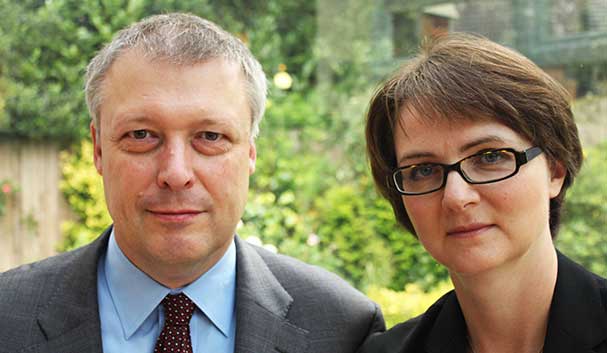
My husband and I have been job-sharing the role of Ambassador in Armenia for the past two years. We decided to use the format pioneered by the first couple to job-share the head of post role – four months on/off – and have found this has worked very well, for us, for the Embassy team and for our wider external contacts. It is a long enough period to see a lot of decisions/ business through and to (re)establish yourself as the person in the hot seat; but it is not so long that you lose touch with the key issues or the key people.
We thought about it a lot before going into it and established a few ground rules. First: the importance of continuity of decision-making – you need to discuss in advance and both be happy with the big decisions, but to trust (and not later undermine) the lower-level decisions which the ‘on’ Ambassador has to make quickly every day. Second: to avoid appearing in public together at official events. People quickly learn that the person who turns up is the person in charge.
The biggest challenge we have found is with sharing/filtering the unstoppable flow of day-to-day information, so the ‘off’ partner keeps up with on-going issues, useful conversations with contacts, dynamics with other colleagues etc. With a young family at home, it has not always been easy to find a space to download the day – and everyone needs to switch off from the office at some point! Setting out a structured time most weeks to come into the Embassy and go through key papers – or just go out to dinner to discuss issues in private – has been the way we have dealt with this. But as the ‘off’ partner you also need to be careful to remain ‘off’.
We have encountered some scepticism (particularly from fellow Ambassadors, who perhaps prefer to feel irreplaceable, not interchangeable!). But we have found that once contacts have met us both, and realised that we are both credible, informed, and committed, then the issue drops away. While the format could work for almost any job, it has obvious advantages where resources are limited. It adds to the energy, resources and resilience of a small post. It means there is another pair of hands to unlock the building in an emergency. As we all try to do more with less, in often isolated and difficult places, we think this kind of flexible working can make a real difference.
